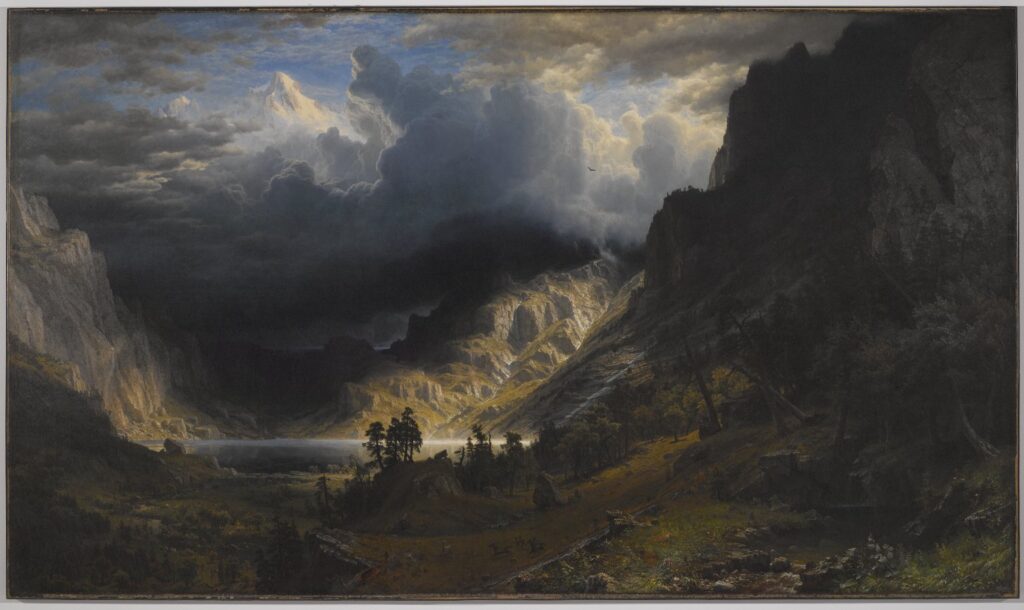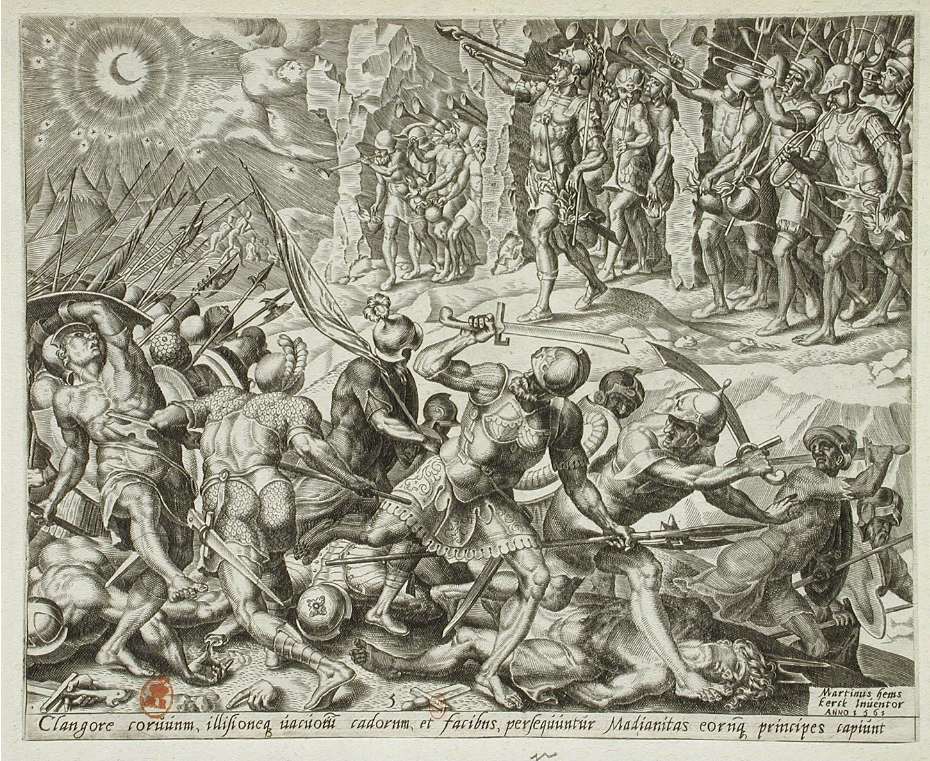The Band of Gideon
By Joseph S. Cotter, Jr.
Annotations by Rene Marzuk

The band of Gideon roam the sky,[1] The howling wind is their war-cry, The thunder's roll is their trump's peal, And the lightning's flash their vengeful steel. Each black cloud Is a fiery steed, And they cry aloud With each strong deed, “The sword of the Lord and Gideon.” And men below rear temples high, And mock their God with reasons why, And live in arrogance, sin and shame, And rape their souls for the world's good name. Each black cloud Is a fiery steed, And they cry aloud With each strong deed, “The sword of the Lord and Gideon.” The band of Gideon roam the sky And view the earth with baleful eye; In holy wrath they scourge the land With earthquake, storm and burning brand. Each black cloud Is a fiery steed, And they cry aloud With each strong deed, “The sword of the Lord and Gideon.” The lightnings flash and the thunders roll, And “Lord have mercy on my soul” Cry men as they fall on the stricken sod In agony, searching for their God. Each black cloud Is a fiery steed, And they cry aloud With each strong deed, “The sword of the Lord and Gideon.” And men repent and then forget That heavenly wrath they ever met, The band of Gideon yet will come And strike their tongues with blasphemy dumb. Each black cloud Is a fiery steed, And they cry aloud With each strong deed, “The sword of the Lord and Gideon.”
COTTER, JOSEPH S., JR. “THE BAND OF GIDEON,” IN THE DUNBAR SPEAKER AND ENTERTAINER, ED. ALICE MOORE DUNBAR-NELSON, 83-84. NAPERVILLE, ILL: J. L. NICHOLS & CO., 1920.

[1] Gideon was a biblical military leader, judge, and prophet, whose story appears in the Book of Judges of the Hebrew Bible. With only 300 men, the initially reluctant Gideon overtook a much larger army by ordering his men to blow their trumpets and scream in unison, “The sword of the Lord and of Gideon!” In the ensuing confusion, Gideon defeated his enemy.
Contexts
“The Band of Gideon” was originally published in Cotter’s The Band of Gideon and Other Lyrics (1918). The poem also appeared in The Upward Path: A Reader for Colored Children in 1920, the same year it was published in The Dunbar Speaker and Entertainer.
The Dunbar Speaker and Entertainer‘s dedication reads: “To the children of the race which is herein celebrated, this book is dedicated, that they may read and learn about their own people.” In the foreword, Leslie Pinckney Hill, an African American educator, writer, and community leader who graduated from Harvard University in 1903, criticizes the one-sidedness of prevailing reading courses: “In vain may you search their pages—those pages upon which all our reading has been founded—for anything other than a patronizing view of that vast, brooding world of colored folk—yellow, black and brown—which comprises by far the largest portion of the human family.” Hill further writes that Alice Dunbar-Nelson’s book seeks to prove “that the white man has no fine quality, either by heart or mind, which is not shared by his black brother.”
Think of reading this poem out loud. Elocution (or public speaking) was a highly valued and widely taught skill in nineteenth-century America. In her introduction to the Dunbar Speaker, Alice Dunbar-Nelson offers some advice: “Before you begin to learn anything to recite, first read it over and find out if it fires you with enthusiasm. If it does, make it a part of yourself, put yourself in the place of the speaker whose words you are memorizing, get on fire with the thought, the sentiment, the emotion-then throw yourself into it in your endeavor to make others feel as you feel, see as you see, understand what you understand. Lose yourself, free yourself from physical consciousness, forget that those in front of you are a part of an audience, think of them as some persons whom you must make understand what is thrilling you–and you will be a great speaker.”
Definitions from Oxford English Dictionary:
baleful: Unhappy, wretched, miserable; distressed, sorrowful, mournful (archaic).
peal: A loud outburst or volley of sound, esp. of laughter or thunder.
rape: To take or seize (something) by force. In early use occasionally of an animal: to seize or devour prey (now obsolete).
scourge: Figuratively, to punish, chastise, correct (often said of God, with reference to Hebrews xii. 6); to “lash” with satire or invective; to afflict, torment; to devastate (a country) with war or pestilence.
steel: Steel in the form of weapons or cutting tools (occasionally spurs, a trap, etc.). Hence in particularized use, a sword, lance, bayonet, or the like.
trump: Trumpet (archaic and poetic).
Resources for Further Study
- Joseph Seamon Cotter Jr.‘s profile at The War Poets Gallery.